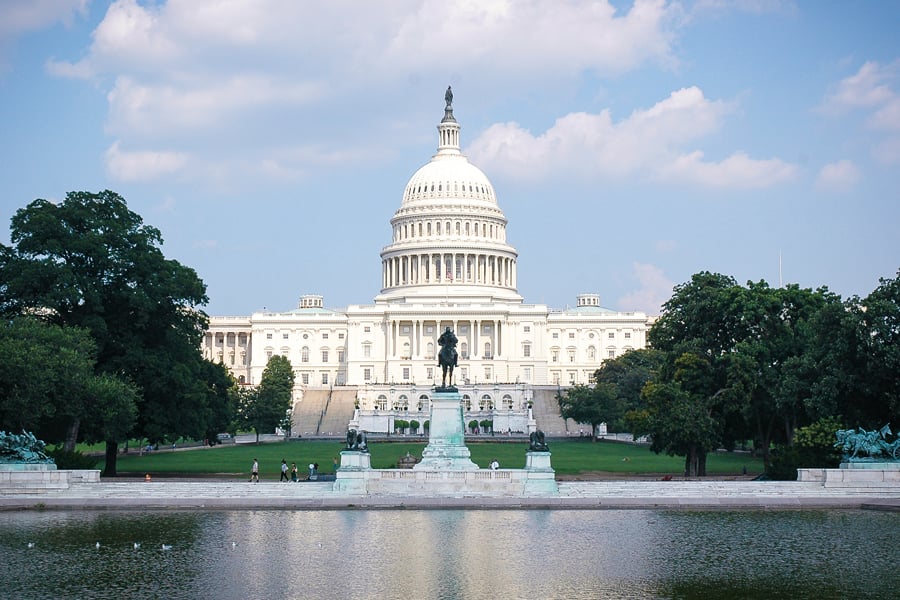Advocates for active investment management are lobbying lawmakers to ensure they don't lean toward passive products as the default investment in retirement savings legislation and other bills.
Index investing, which was highlighted in the
now-defunct Labor Department fiduciary rule,
has a reputation for being less costly and more effective overall for long-term investors.
That's a view that those involved in the Capitol Hill outreach want to adjust by emphasizing the benefits of active management, such as risk reduction and portfolio diversity.
"There are a lot of misconceptions out there about active and passive," said Karen Barr, president and chief executive of the Investment Adviser Association. "Our goal is to make sure policymakers and regulators don't put their thumbs on the scale favoring one type of investment or another."
A group of IAA members established the
Active Managers Council last April to launch an educational effort.
"We want to take the 'versus' out of the conversation," said Mara Shreck, head of regulatory affairs for asset and wealth management at J.P. Morgan Chase & Co. and a member of the Active Managers Council. "It's not active 'versus' passive. It's active 'and' passive."
Last week, IAA members met with congressional staff regarding
a white paper written by Sen. Mark Warner, D-Va., and Rep. Jim Himes, D-Conn., that is the basis for a pending bill: the Portable Retirement and Investment Account (PRIA).
The white paper outlines two programs. PRIA Basic would be invested in a target-date fund, while PRIA Choice would offer a wider investment range. The white paper
asks for comments on whether there should be a requirement that every option in PRIA Choice be "a highly diversified, low-cost fund, such as S&P 500 funds, target-date funds, large-cap funds or something similar."
Mr. Himes doesn't want to limit the options.
"Choice is critical," Mr. Himes, a member of the House Financial Services Committee, said in an interview. "We're not looking to take away anybody's choice. If you want active management, or if you want to trade, there will be a vehicle for your to do that."
The Investment Company Institute, a trade association that represents the mutual fund industry, said its
survey data show investors want choice and control of their investments in retirement savings plans.
"We would oppose any measure that looks at this choice as an 'either active or index-based' decision, because investors have demonstrated they prefer a 'both/and' approach to the investment options they have in retirement," ICI spokesman Matthew Beck said in a statement. "Ultimately, this is a decision best left to the market to decide."
But Mr. Himes warned that some kinds of active management can harm investors.
"I take a dim view of accounts that charge consumers a lot of money for activities that actually over the long run reduce the return on those accounts," Mr. Himes said. "I'm not accusing anybody of anything. I'm just saying there aren't a lot of algorithmically true things in finance. But it is absolutely true that what most Americans need to worry about is correct asset allocation, not stock picking, not choosing between two active advisers."
Still, it's up to investors, according to Ms. Barr.
"The legislation should be high-level and principles-based and leave the investing to investors and their investment professionals," she said.
It's not clear when PRIA legislation will be introduced. So far, there aren't any other retirement-savings measures that specifically call for a reliance on passive investments.
"We intend to be preemptive here," Ms. Shreck said. "Nobody else is really talking about the default investments. We've seen unintended consequences in the past."







